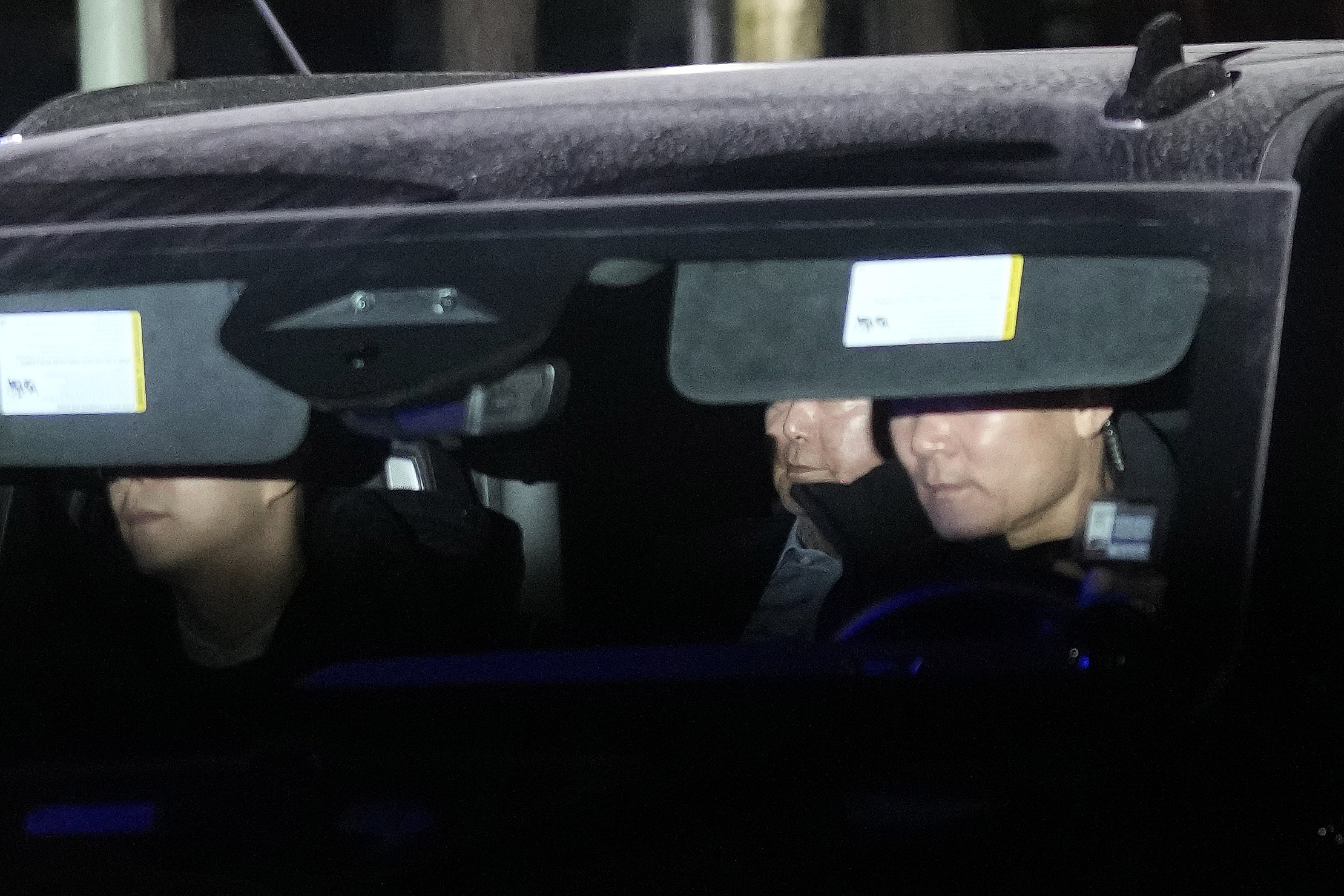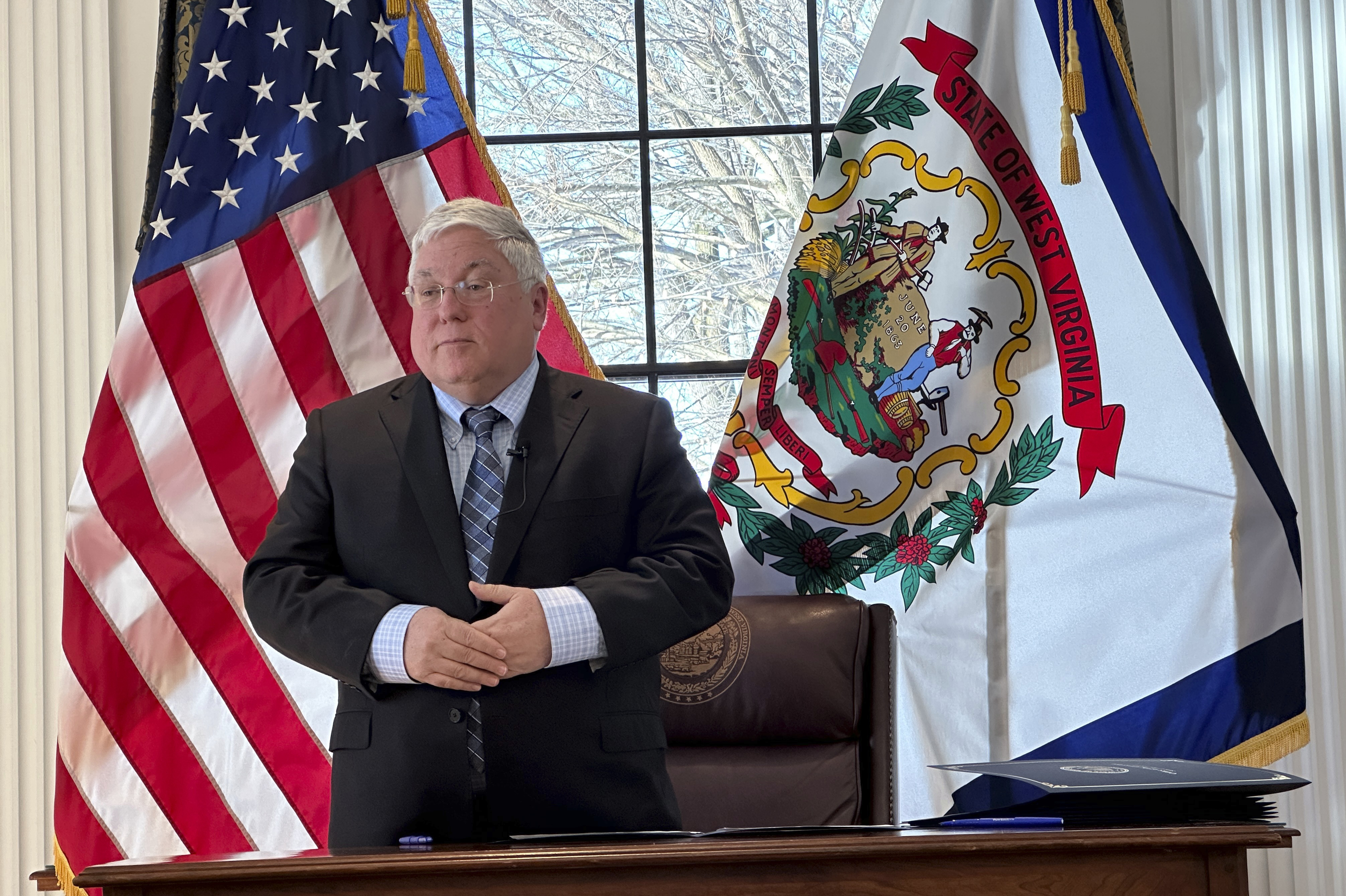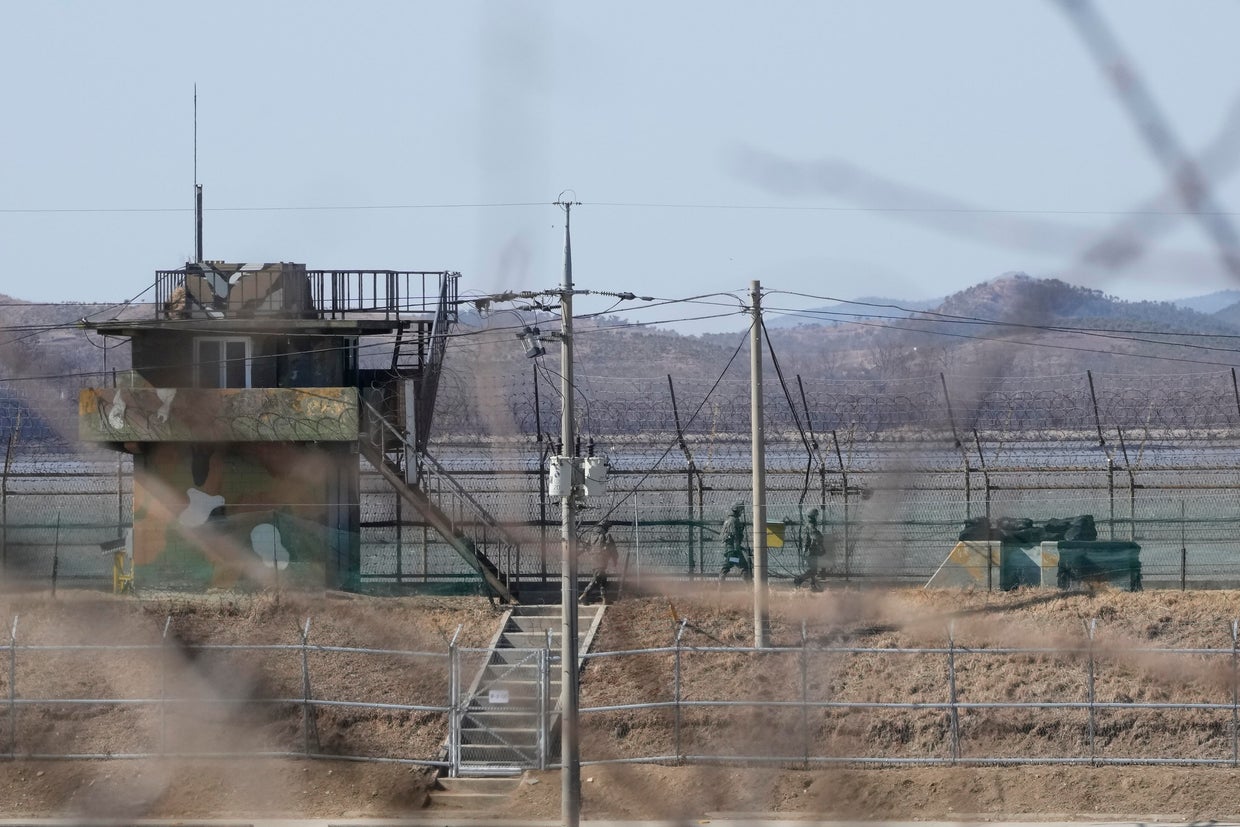South Korean authorities take impeached President Yoon to detention center after questioning

Yoon Suk Yeol was taken into custody by anti-corruption officers for imposing martial law in South Korea last month.
Yoon was arrested in an important law enforcement operation earlier that day at the presidential compound. Yoon insisted that he didn’t give the anti-corruption agency of the country, who led the raid along with the police, the authority to investigate him, but he said he did it to prevent violence.
Yoon, who is the first sitting president of the country to be arrested, faces a long prison sentence over possible rebellion charges.
Yoon, in a video recorded just before he left for the headquarters of the anticorruption agency to be escorted there, lamented that “the rule of law is completely broken down in this country.”
|
Yoon was holed up at his Hannam-dong home in Seoul’s capital for weeks, vowing to fight to the bitter end against the attempts to remove him. He justified declaring martial law on Dec. 3, claiming it was a legitimate measure of governance to counter an “antistate” opposition that used its legislative majority against his agenda.
The Corruption Investigation Office for Senior Officials reported that Yoon was taken into custody after about five hours of investigators arriving at the presidential compound, and after about three hours they had successfully entered the residence. This was their second attempt to arrest him for his imposition martial law.
A number of black SUVs with some sirens were seen leaving with police in tow. Yoon was seen getting out of the vehicle later after arriving at Gwacheon’s agency office.
As Yoon was being questioned, hundreds of conservatives rallied in front of the office of the anti-corruption organization. They shouted slogans and held signs saying: “We will stand by President Yoon Suk Yeol.”
According to the Gyeonggi Provincial Fire Department, on Wednesday, a man who was not identified appeared to have self-immolated near the site and is in a life-threatening state.
Yoon was taken to a detention facility in Uiwang near Seoul after being questioned by the police for over 10 hours. He was escorted there by presidential security vehicles and police cars.
What’s next?
Yoon may be detained for several weeks or even months.
The anti-corruption office, which is leading an investigation jointly with the police, the military, and Yoon to determine whether his declaration of martial law amounted as a rebellion attempt, has 48 hours in order to request a court warrant for Yoon’s formal arrest.
Yoon will then be released if it does not. Investigators may extend Yoon’s detention up to 20 days if he is officially arrested.
Park Sung Bae, a criminal lawyer who specializes in criminal law, says that if prosecutors indict Yoon for rebellion and abuse charges, the allegations investigated by investigators, Yoon could remain in jail until the first court ruling is made, which usually takes place within six months.
If convicted, the South Korean law can punish the leader of any rebellion with the death penalty or even life imprisonment.
Park stated that “if the first court sentences him to prison, his detention will continue.” “If he is sentenced to life imprisonment for example, then he will serve that sentence until the end.”
Yoon’s Defense Minister, Police Chief and a number of top military commanders had already been arrested for their roles in the implementation of martial law.
The Seoul Western District Court issued a detention warrant against Yoon. It stated that there were many reasons to suspect he had committed crimes in his role as “ringleader of an uprising.”
According to the anti-corruption agency, Yoon exercised his right not to speak during the several hours of interrogation that lasted through Wednesday evening.
Parliament impeached Yoon on December 14. The Constitutional Court will now decide whether to remove Yoon officially from office, or to reject the case.
Yoon, in a message posted to his Facebook page after his arrest, said that “martial laws are not crimes.” He added that his declaration was needed to bring attention to an opposition who was “exercising legislative dictatorship” by “blocking budgets and laws” and “paralyzing state affairs.” He called his impeachment “fraud” and denied the accusations of rebellion.
Scenes from the compound
The investigators and officers of the police anti-corruption unit engaged in a standoff with the presidential security force for several hours at the gate to the compound as they started the detention operations in the morning. However, there was no significant resistance.
Wire cutters were used by police officers to remove barbed wire that had been placed on the perimeter of a compound by the presidential security services to prevent their entry. Some police officers used ladders in order to get over the rows of buses that blocked the compound’s entry. Then, the investigators started moving up the hilly complex. Investigators and police arrived at a metal gate near Yoon’s residence with a presidential gold mark. Yoon, his lawyer and chief of staff were all seen with some officers entering the security door that was on the metal gate.
Preparations and concerns
In a statement issued early on Wednesday, South Korea’s acting president, Choi Sangmok, called for law enforcement officials and the presidential security services to prevent “physical clashes.”
Choi, after Yoon’s arrest, met with diplomats of the Group of Seven nations including the United States of America, Japan, U.K., and Germany as well as a representative of the European Union to assure them that the government is functioning in a stable manner.
Park Chan-dae said Yoon’s arrest was “the first step towards restoring constitutional orders, democracy and realizing rule of law.”
Yoon’s People Power Party lawmakers condemned the detention, calling it illegal.
In recent days, the National Police Agency held meetings with field commanders from Seoul and the nearby province of Gyeonggi to plan their effort to arrest Yoon. The size of these forces led to speculation that over 1,000 officers might be deployed. The National Police Agency and the police warned openly that any presidential bodyguards who obstructed the execution of the arrest warrant would be arrested.
Yoon’s attorneys have said that the Seoul Western District Court detention warrant was invalid. They cited a provision of law which protects places that may be linked to military secrets against searches without consent.









No Comments